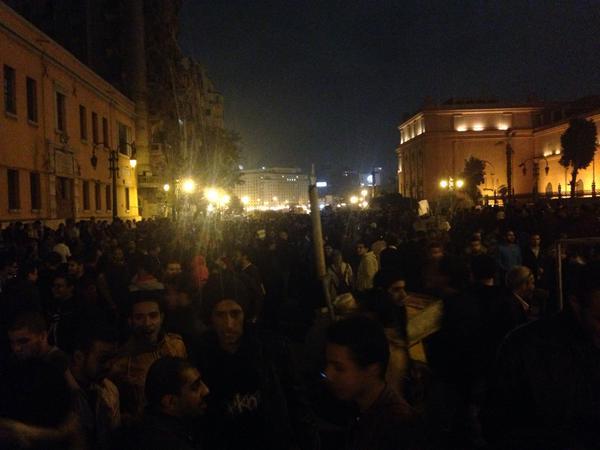Egyptians take to the streets after Hosni Mubarak acquitted for 2011 protester deaths
Protesters returned to Cairo’s Tahrir Square on Saturday, flouting a ban on protests, after an Egyptian court tossed out charges against ousted president Hosni Mubarak for the deaths of almost 900 protesters during the country’s 2011 uprising.
In an interview shortly after the court’s decision, Mubarak said that he did “nothing wrong at all.”
Charges were also dropped against senior officials in Mubarak’s government.
The former president was seen waving to his supporters from a stretcher as he returned to a Cairo military hospital. It is unclear whether or not he will walk free now, as he is presently serving a three-year sentence for embezzlement.
The decision triggered a wave grief and anger for opponents of Mubarak’s government, particularly the victims’ families.
“There is no justice for the poor,” Ramadan Ahmed, father of a man shot dead in Alexandria during the revolution, told the Associated Press. "This is Mubarak's law."
For some, the decision was the nail in the coffin for the Arab Spring — far from the optimism that gripped the country after the 18-day revolution brought an end to Mubarak’s 30-year rule.
For others, it was to be expected.
But in the hours following the verdict, protesters descended on Tahrir Square, just as they had done in 2011 during the revolution that removed Mubarak from power.
With protests effectively outlawed in Egypt, it has been a while since crowds have been seen at Tahrir, which was the staging ground for the 2011 revolution.
And despite the revolution, little has changed in the way the Egyptian authorities deal with protesters.
Every day, reporters and producers at The World are hard at work bringing you human-centered news from across the globe. But we can’t do it without you. We need your support to ensure we can continue this work for another year.
Make a gift today, and you’ll help us unlock a matching gift of $67,000!
